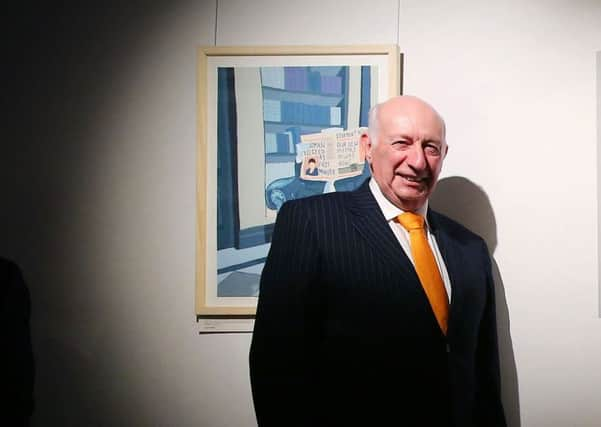Speaker Newton personally blocks release of advice to the News Letter


On 24 October, Mr Newton refused to accept an urgent oral question – which would have summoned the First Minister or deputy First Minister to the chamber – about Executive funding for Charter NI.
However, Mr Newton did not declare an interest in the matter, despite subsequent revelations of his extensive involvement with Charter NI, an organisation whose chief executive is the alleged UDA commander Dee Stitt.
Advertisement
Hide AdAdvertisement
Hide AdAfter questions from this newspaper, Mr Newton subsequently apologised for his handling of the situation and said that he should have recused himself from the decision over whether to accept the urgent question.
At the time, Mr Newton said that he had accepted “procedural advice” when making the decision.
The News Letter submitted a Freedom of Information request to the Assembly asking for all material relating to decisions about the handling of urgent oral questions – including the critical question about Charter NI.
Some information was released. However, on Friday the Assembly responded to say that additional information which it holds will not be released because Mr Newton had personally decided that the issue was not in the public interest.
Advertisement
Hide AdAdvertisement
Hide AdUnder the Freedom of Information Act, Mr Newton is the ‘qualified person’ who has the power to decide on engaging certain exemptions. Mr Newton decided that the information should be exempt from disclosure under section 36 of the Freedom of Information Act, which can be invoked if the material would lead to “Prejudice to the effective conduct of public affairs”.
However, that test involves a two-stage process. After the exemption is engaged by the qualified person there must then be a public interest test conducted. Mr Newton could have asked for another individual less personally involved in the situation to take that decision on the public interest.
However, the Assembly response indicates that the Speaker personally took both decisions: “It is the opinion of the Presiding Officer that the remainder of the information held relevant to your request is exempt from disclosure”.
The letter added that “in the opinion of the Presiding Officer...disclosure of advice from officials in relation to urgent oral questions is exempt from disclosure” because it “would be likely to inhibit the free and frank provision of advice”.
Advertisement
Hide AdAdvertisement
Hide AdSDLP MLA Nichola Mallon, whose initial oral question was refused by Mr Newton, said that “serious concerns” had been raised about how he had conducted himself since he ruled against her question about Charter NI.
She told the News Letter: “The Speaker had the opportunity here to release this advice and prove he was acting properly but has declined to do so.
“He’s now gone a step further and personally ruled that releasing this information is not in the public interest.
“This decision flies in the face of the logic he himself has applied in exempting himself from ruling on subsequent questions in the Assembly on Charter NI.”
Advertisement
Hide AdAdvertisement
Hide AdJust eight months after the DUP and Sinn Fein voted him in as Assembly Speaker, Robin Newton tomorrow faces a vote of no confidence.
The veteran East Belfast DUP MLA faced unusually strong criticism from Opposition MLAs over his handling of the Charter NI situation two months ago.
That was followed by the chaotic mid-December sitting of the Assembly in which Mr Newton openly lost the confidence of the entire chamber, with the exception of his own party, the DUP.
The motion of no confidence has been tabled by Sinn Fein and calls for Mr Newton’s immediate resignation.
Advertisement
Hide AdAdvertisement
Hide AdThe DUP could table a petition of concern to veto the motion, but that would see it defeated on a technicality it would still be clear that Mr Newton had lost the confidence of the chamber. Even if the motion passes, however, it is not clear that Mr Newton can be forced from office.